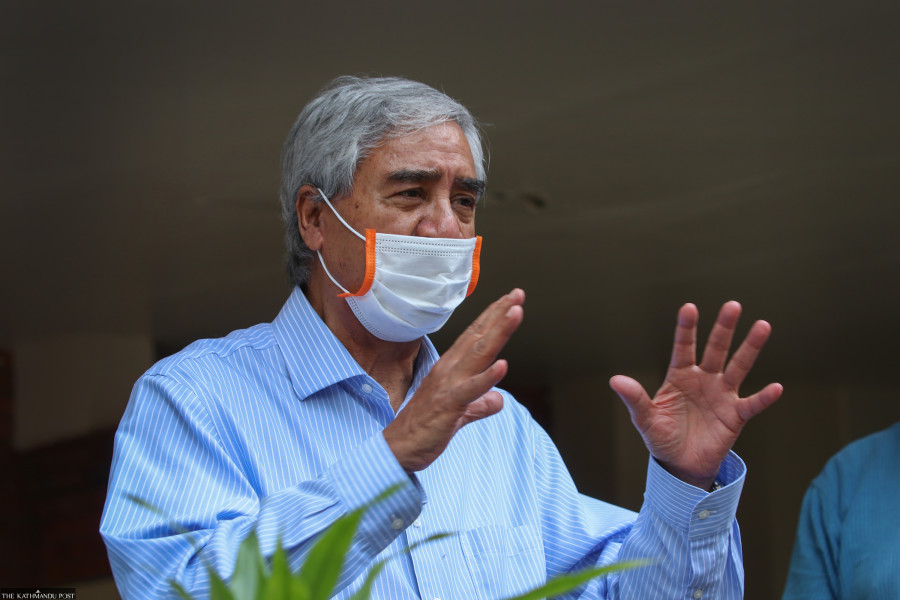Editorial
Uncertainty ahead
Deuba cannot afford to be “incompetent” again. But the keys to his success are not in his hands.
In May 2002, Sher Bahadur Deuba, during his second stint as prime minister, dissolved Parliament with the promise of holding elections. Unable to fulfil his pledge, he was dismissed by King Gyanendra in five months for being "incompetent". Nineteen years later, ironically, the same man who once killed Parliament has been ushered into the same position to resuscitate it after KP Sharma Oli tried to kill it twice within six months.
Deuba was the angry young man of Nepali politics in 2002. A septuagenarian today and a five-time prime minister, he has hopefully become calmer and wiser. He cannot afford to be "incompetent" again. But saving Parliament is going to be no cakewalk this time around.
Deuba has found himself at the top not because of his electoral success or political acumen, but because of his predecessor and rival Oli’s misadventures against parliamentary democracy. So the most important task he has on the table is to mend the fractured democratic process and give a sense of stability to politics even as we fight the deadly pandemic and a downward spiral of the economy. If he succeeds in doing that, it will be an opportunity for him to salvage his image as a nemesis of parliamentary democracy of yesteryear.
But the key to Deuba’s success is with the CPN-UML, or the Madhav Kumar Nepal faction of the party that refused to support Oli’s misadventures. For Deuba to continue for another year and a half until the end of the tenure of the current House, the UML, or its dissidents led by Madhav Kumar Nepal, will have to continue supporting Deuba through the floor test within a month. But that looks unlikely at the moment, as Madhav and his comrades seem to be more keen to find their footing within the party now that the Parliament is alive again.
The key to Deuba’s success is also with the Janata Samajbadi Party (JSP), or the Mahantha Thakur-Rajendra Mahato faction of the party that supported Oli’s misadventures. If the Thakur-Mahato faction stands in unison with the party to save Parliament, Deuba still has a chance to win the vote of confidence, along with the support of his party and the Maoist Centre. You cannot trust Nepali politicians to stick to their principles or factions; so Deuba’s performance during the floor test will depend on closed-door negotiations and power-sharing deals if not horse trading altogether.
Even if Deuba fails to garner enough support during the floor test, he can’t be termed a complete failure as a politician this time. But his failure will be unfortunate for the country, as the prospect of an early election is scary at the moment. We are in the middle of a pandemic right now and are staring at a possible third wave in the next few months. We are, therefore, not in a position to organise big rallies and excessive movement of people, which are part and parcel of an electoral campaign. We have already seen in the case of India that big events such as Kumbh Mela and elections in several states contributed to a spike in cases that ultimately became a deadly second wave.
Even if Article 76 (7) of the constitution allows holding an early election as a last resort, leaders across the political spectrum must think if we are really in a position to take the risk at the moment.




 8.79°C Kathmandu
8.79°C Kathmandu














